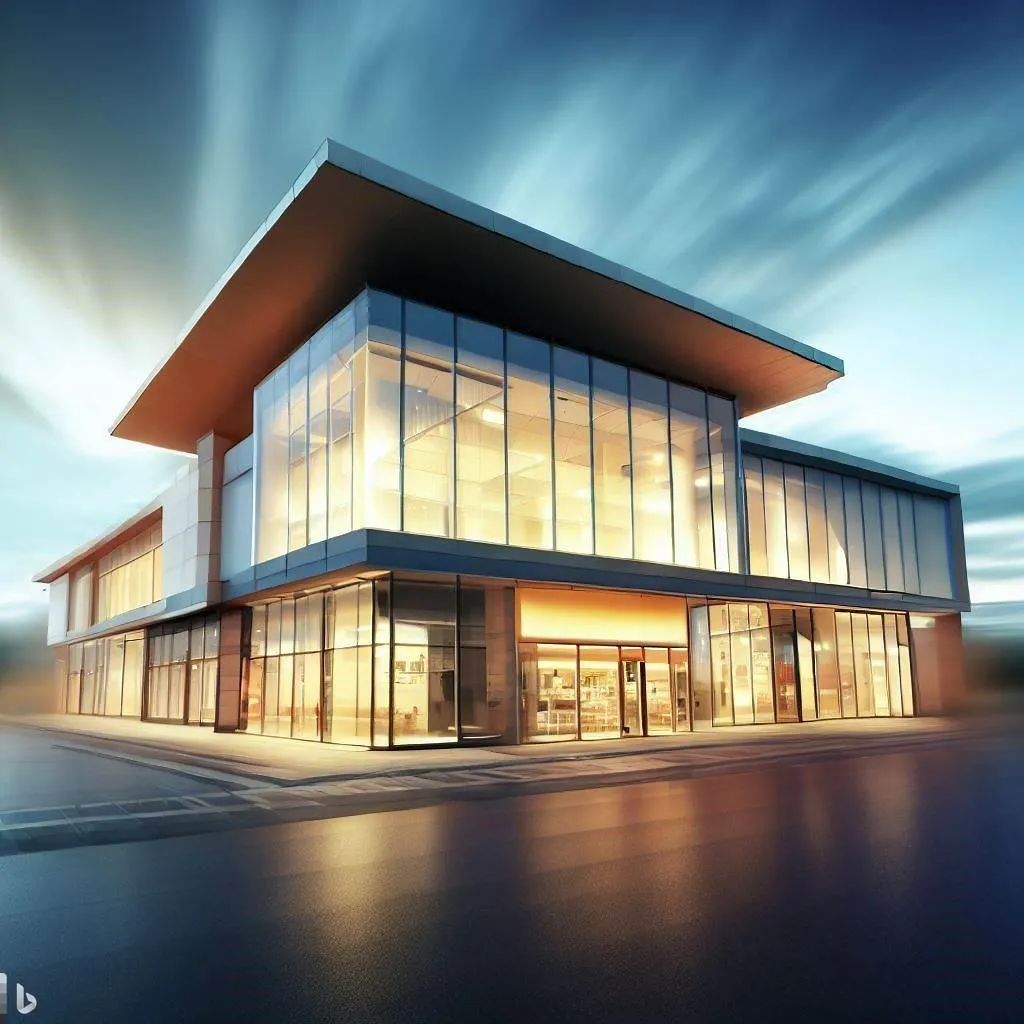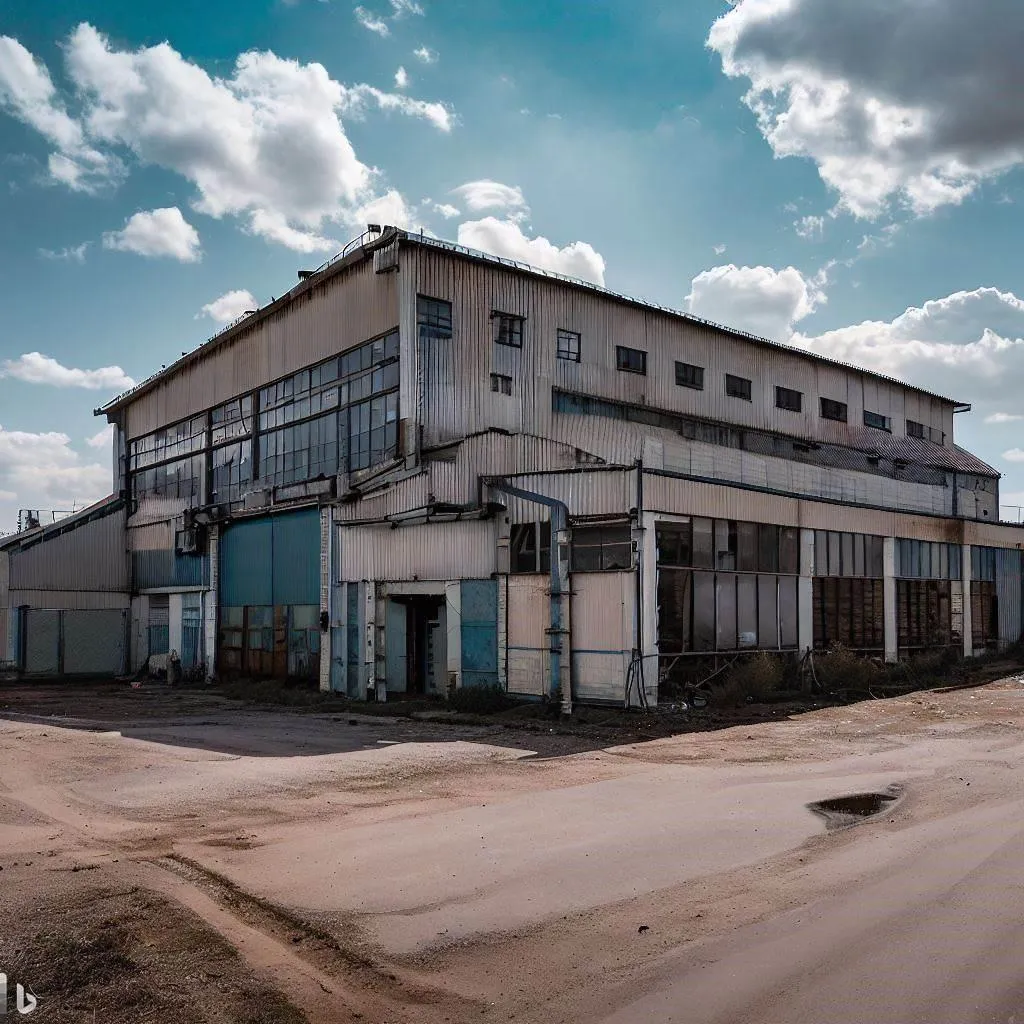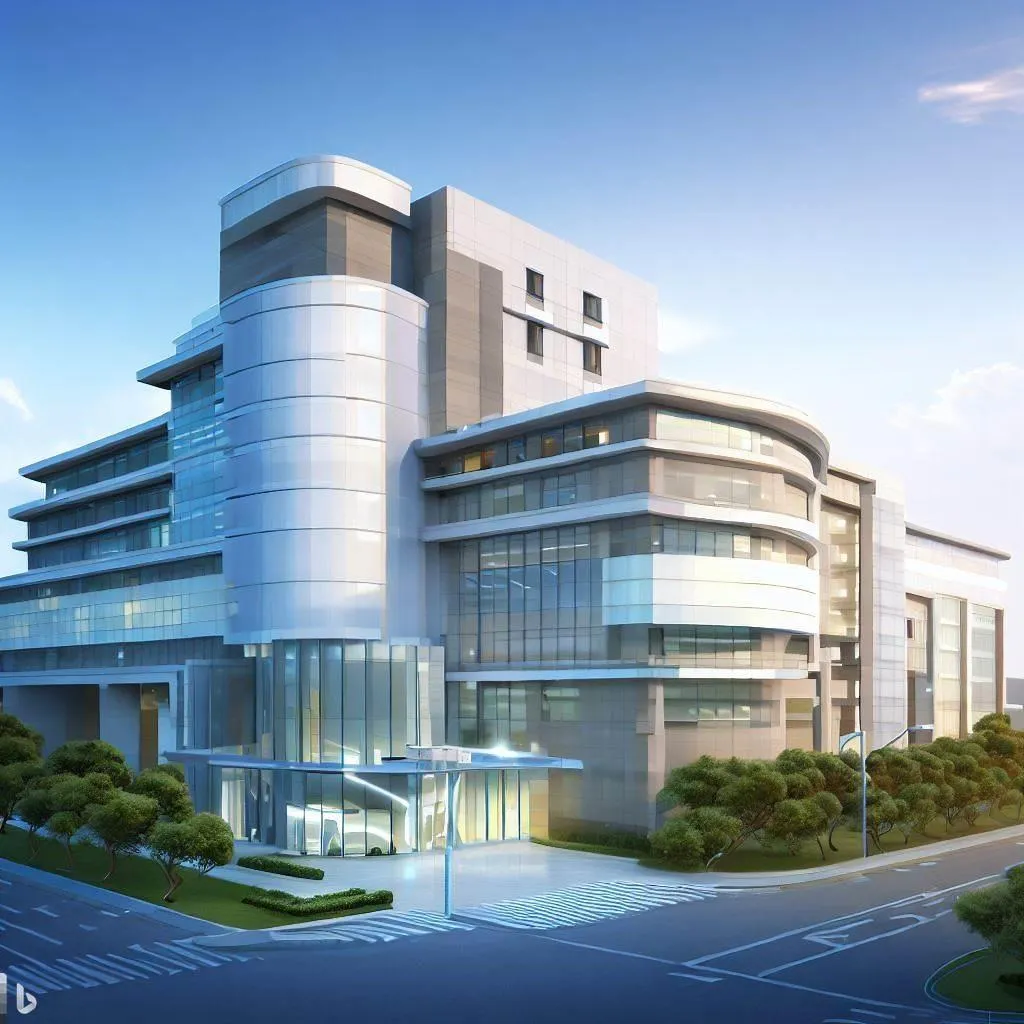Your Trusted Houston Commercial Real Estate Brokerage
Viking Enterprise LLC is part of eXp Commercial, an agent-led, cloud-based commercial real estate brokerage with agents across the globe.
Email: [email protected]
Call: (281) 222-0433
Your Trusted Katy / Fulshear & Houston Commercial Real Estate Brokerage
Viking Enterprise LLC is part of eXp Commercial, an agent-led, cloud-based commercial real estate brokerage with agents across the globe.
Looking to invest, buy, sell or lease? We can help.
Looking to invest, buy, sell or lease? We can help.
FEATURED PROPERTIES




OUR FEATURED TENANTS & CLIENTS
eXp Commercial - Viking Enterprise Team's real estate network provides unparalleled commercial real estate services to Tenants and Landlords around the Katy- Houston area. Our knowledge, experience, and reputation sets us apart from many firms.
A commercial property owner might have various plans that would necessitate the services of a commercial real estate broker. Some of the common scenarios include:
1. Selling the Property: If the owner decides it’s time to sell the property, a commercial real estate broker can help determine the market value, market the property effectively, and negotiate with potential buyers to get the best possible price.
2. Leasing Space: For property owners looking to lease out part or all of their commercial space, a broker can help find suitable tenants, negotiate lease terms, and ensure the lease agreements meet all legal requirements and serve the owner’s best interests.
3. Acquiring More Properties: Owners looking to expand their portfolio would benefit from a broker's knowledge of the market, access to listings, and negotiation skills to secure additional properties at favorable terms.
4. Property Management: While not all brokers offer this service, some commercial real estate brokers or their affiliates offer property management services. This can be particularly appealing for owners who prefer a hands-off approach or are managing properties from a distance.
5. Market Analysis: Owners considering future developments, renovations, or rebranding of their property might engage a broker for a comprehensive market analysis. This helps in understanding current market trends, the demand for different types of spaces, and potential returns on investment for various strategies.
6. Refinancing: In situations where a property owner is looking to refinance their property, a commercial real estate broker can provide valuable insights into the property’s current market value, assist in gathering necessary documentation, and even help in finding the best financing options.
7. Partnership or Investment Opportunities: Owners interested in exploring partnerships, joint ventures, or seeking investors for expansion or development projects might use a broker to find and vet potential partners or investors.
8. Consulting on Zoning and Use Changes: When contemplating a change in the use of the property or dealing with zoning issues, a broker with experience in local regulations and the specific property type can provide guidance and strategic planning assistance.
9. Exit Strategy Planning: For owners looking to plan an exit strategy from their investment, whether it’s through a strategic sale or a gradual winding down of operations, brokers can provide market insights, timing advice, and valuation services to optimize the exit process.
In any of these scenarios, the expertise and services provided by a commercial real estate broker can save the property owner time and money, while also providing access to a wider network of potential buyers, tenants, and industry professionals. Give us a call today!
Reviews

📐 Build-to-Suit vs Spec Construction: Which CRE Strategy Wins? 🏗️
📐 Build-to-Suit vs Spec Construction: Which CRE Strategy Wins? 🏗️
🏢 Build-to-Suit vs Spec Projects: Key Differences Every Investor Should Know 📊
📐 Build-to-Suit vs Spec Construction: What’s the Difference?
In commercial real estate development, two common strategies dominate new builds — Build-to-Suit (BTS) and Speculative (Spec) Construction. While both involve creating new properties, the timing, risk, financing, and tenant dynamics differ significantly. Understanding these differences can help investors, business owners, and developers choose the right path for their goals.
What Is Build-to-Suit?
A Build-to-Suit project is custom-designed and constructed for a specific tenant before construction begins. The tenant and developer agree on design, layout, and lease terms before breaking ground.
Key Features of Build-to-Suit:
· Tenant Commitment: Secured before construction starts.
· Custom Design: Tailored to the tenant’s operational needs.
· Long-Term Lease: Often 10–20 years, providing income stability.
· Financing Advantage: Easier to secure financing due to guaranteed lease income.
Pros for Investors: Reduced vacancy risk, predictable cash flow.
Cons: Limited flexibility for future tenants if the current one leaves.
What Is Speculative (Spec) Construction?
Spec construction refers to building a property without a committed tenant in place. The developer constructs the property to appeal to a broad market and leases or sells it after completion.
Key Features of Spec Construction:
· No Pre-Lease: Tenant is found after the project is complete or underway.
· Market-Ready Design: Built for broad appeal, often with flexible layouts.
· Higher Risk, Higher Reward: Potential for longer vacancies but higher rent premiums in strong markets.
· Financing Challenge: Requires strong market analysis to secure funding.
Pros for Investors: Flexibility to adapt to changing tenant needs, potential for higher rents in competitive markets.
Cons: Carrying costs if leasing takes longer than expected.
Comparing Build-to-Suit vs Spec Construction
Factor
Build-to-Suit
Spec Construction
Tenant Commitment
Pre-leased
Found after completion
Design
Fully customized
Generic/flexible
Risk Level
Lower
Higher
Financing
Easier
More challenging
Time to Lease
Immediate on completion
Variable
Market Flexibility
Limited
High
Which Strategy Should You Choose?
· Choose Build-to-Suit if: You have a committed tenant, want predictable returns, and prefer lower risk.
· Choose Spec Construction if: You believe the market is strong, want flexibility, and can handle a longer lease-up period.
For developers, the decision often depends on market conditions, access to financing, and investment timelines. For business owners, BTS ensures the space is perfectly suited to your operations, while spec space might offer quicker occupancy if available.
Bottom Line
Both strategies can be profitable — the right choice depends on risk tolerance, capital structure, and market demand. If you’re exploring a BTS or spec construction project in Katy, Fulshear, or West Houston, working with an experienced commercial real estate broker can help you evaluate site selection, financing, and leasing strategies to maximize returns.
https://www.houstonrealestatebrokerage.com/
https://www.houstonrealestatebrokerage.com/houston-cre-navigator
https://www.commercialexchange.com/agent/653bf5593e3a3e1dcec275a6
http://expressoffers.com/[email protected]
https://app.bullpenre.com/profile/1742476177701x437444415125976000
https://author.billrapponline.com/
https://www.amazon.com/dp/B0F32Z5BH2
https://veed.cello.so/FOmzTty6oi9
© 2023-2024 Bill Rapp, Broker Associate, eXp Commercial Viking Enterprise Team
eXp Commercial - Viking Enterprise team real estate network provides unparalleled commercial real estate services to Tenants and Landlords around the greater Katy & Houston MSA area. Our knowledge, experience, and reputation sets us apart from many firms.
A commercial property owner might have various plans that would necessitate the services of a commercial real estate broker. Some of the common scenarios include:
1. Selling the Property: If the owner decides it’s time to sell the property, a commercial real estate broker can help determine the market value, market the property effectively, and negotiate with potential buyers to get the best possible price.
2. Leasing Space: For property owners looking to lease out part or all of their commercial space, a broker can help find suitable tenants, negotiate lease terms, and ensure the lease agreements meet all legal requirements and serve the owner’s best interests.
3. Acquiring More Properties: Owners looking to expand their portfolio would benefit from a broker's knowledge of the market, access to listings, and negotiation skills to secure additional properties at favorable terms.
4. Property Management: While not all brokers offer this service, some commercial real estate brokers or their affiliates offer property management services. This can be particularly appealing for owners who prefer a hands-off approach or are managing properties from a distance.
5. Market Analysis: Owners considering future developments, renovations, or rebranding of their property might engage a broker for a comprehensive market analysis. This helps in understanding current market trends, the demand for different types of spaces, and potential returns on investment for various strategies.
6. Refinancing: In situations where a property owner is looking to refinance their property, a commercial real estate broker can provide valuable insights into the property’s current market value, assist in gathering necessary documentation, and even help in finding the best financing options.
7. Partnership or Investment Opportunities: Owners interested in exploring partnerships, joint ventures, or seeking investors for expansion or development projects might use a broker to find and vet potential partners or investors.
8. Consulting on Zoning and Use Changes: When contemplating a change in the use of the property or dealing with zoning issues, a broker with experience in local regulations and the specific property type can provide guidance and strategic planning assistance.
9. Exit Strategy Planning: For owners looking to plan an exit strategy from their investment, whether it’s through a strategic sale or a gradual winding down of operations, brokers can provide market insights, timing advice, and valuation services to optimize the exit process.
In any of these scenarios, the expertise and services provided by a commercial real estate broker can save the property owner time and money, while also providing access to a wider network of potential buyers, tenants, and industry professionals. Give us a call today!

Find the perfect location for your business.
Let us help your business succeed.

📐 Build-to-Suit vs Spec Construction: Which CRE Strategy Wins? 🏗️
📐 Build-to-Suit vs Spec Construction: Which CRE Strategy Wins? 🏗️
🏢 Build-to-Suit vs Spec Projects: Key Differences Every Investor Should Know 📊
📐 Build-to-Suit vs Spec Construction: What’s the Difference?
In commercial real estate development, two common strategies dominate new builds — Build-to-Suit (BTS) and Speculative (Spec) Construction. While both involve creating new properties, the timing, risk, financing, and tenant dynamics differ significantly. Understanding these differences can help investors, business owners, and developers choose the right path for their goals.
What Is Build-to-Suit?
A Build-to-Suit project is custom-designed and constructed for a specific tenant before construction begins. The tenant and developer agree on design, layout, and lease terms before breaking ground.
Key Features of Build-to-Suit:
· Tenant Commitment: Secured before construction starts.
· Custom Design: Tailored to the tenant’s operational needs.
· Long-Term Lease: Often 10–20 years, providing income stability.
· Financing Advantage: Easier to secure financing due to guaranteed lease income.
Pros for Investors: Reduced vacancy risk, predictable cash flow.
Cons: Limited flexibility for future tenants if the current one leaves.
What Is Speculative (Spec) Construction?
Spec construction refers to building a property without a committed tenant in place. The developer constructs the property to appeal to a broad market and leases or sells it after completion.
Key Features of Spec Construction:
· No Pre-Lease: Tenant is found after the project is complete or underway.
· Market-Ready Design: Built for broad appeal, often with flexible layouts.
· Higher Risk, Higher Reward: Potential for longer vacancies but higher rent premiums in strong markets.
· Financing Challenge: Requires strong market analysis to secure funding.
Pros for Investors: Flexibility to adapt to changing tenant needs, potential for higher rents in competitive markets.
Cons: Carrying costs if leasing takes longer than expected.
Comparing Build-to-Suit vs Spec Construction
Factor
Build-to-Suit
Spec Construction
Tenant Commitment
Pre-leased
Found after completion
Design
Fully customized
Generic/flexible
Risk Level
Lower
Higher
Financing
Easier
More challenging
Time to Lease
Immediate on completion
Variable
Market Flexibility
Limited
High
Which Strategy Should You Choose?
· Choose Build-to-Suit if: You have a committed tenant, want predictable returns, and prefer lower risk.
· Choose Spec Construction if: You believe the market is strong, want flexibility, and can handle a longer lease-up period.
For developers, the decision often depends on market conditions, access to financing, and investment timelines. For business owners, BTS ensures the space is perfectly suited to your operations, while spec space might offer quicker occupancy if available.
Bottom Line
Both strategies can be profitable — the right choice depends on risk tolerance, capital structure, and market demand. If you’re exploring a BTS or spec construction project in Katy, Fulshear, or West Houston, working with an experienced commercial real estate broker can help you evaluate site selection, financing, and leasing strategies to maximize returns.
https://www.houstonrealestatebrokerage.com/
https://www.houstonrealestatebrokerage.com/houston-cre-navigator
https://www.commercialexchange.com/agent/653bf5593e3a3e1dcec275a6
http://expressoffers.com/[email protected]
https://app.bullpenre.com/profile/1742476177701x437444415125976000
https://author.billrapponline.com/
https://www.amazon.com/dp/B0F32Z5BH2
https://veed.cello.so/FOmzTty6oi9
© 2023-2024 Bill Rapp, Broker Associate, eXp Commercial Viking Enterprise Team
Find the perfect location for your business.
Let us help your business succeed.
9600 Great Hills Trail, Suite 150w Austin, TX 78759 |
855.450.0324 xx255
Texas Real Estate Commission Consumer Protection Notice Texas Real Estate Commission
Information About Brokerage Services eXp Commercial LLC #9010212
Viking Enterprise LLC #9009614

Sign up to receive the latest news on property investment and commercial real estate listings.
Contact Us
901 S Mopac Expwy, Bldg 2, Suite 350 Austin, TX 78746 | 512.474.5557Texas Real Estate Commission
Consumer Protection Notice Texas Real Estate Commission Information About Brokerage Services Reliance Retail, LLC #603091
Texas RS, LLC #9003193 | RESOLUT RE Is Licensed In Louisiana #0995694083


Facebook
Instagram
X
LinkedIn
Youtube
TikTok